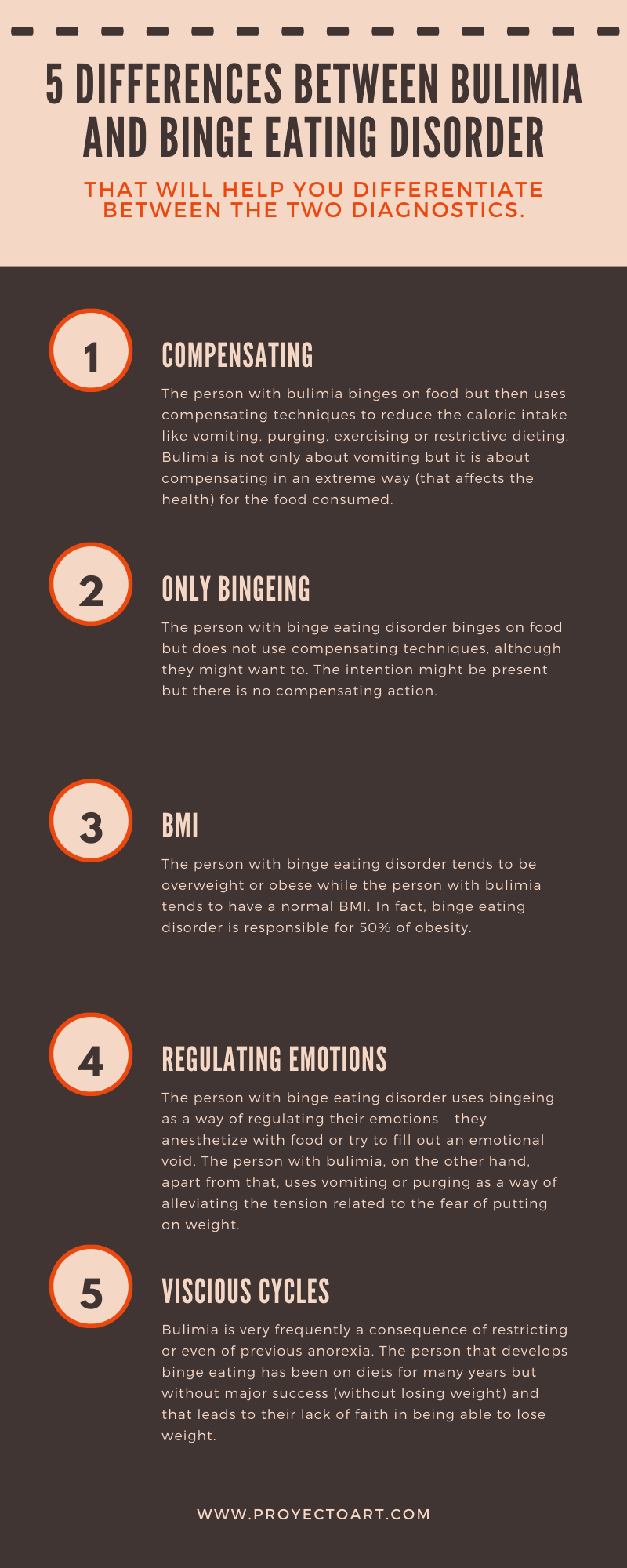Wednesday 29/9/2021
PHOTO: @barczakshoots
Text: Alejandra Misiolek
For many years there were only 2 eating disorders classified by the diagnostic manual (DSM): anorexia and bulimia. However, since 2013, Binge Eating Disorder has been added as a separate category. But binge eating is a symptom of bulimia. So, what is the difference?
In this post I will explain the 5 major differences between bulimia and binge eating that will help you differentiate between the two diagnostics.
- The person with bulimia binges on food but then uses compensating techniques to reduce the caloric intake like vomiting, purging, exercising or restrictive dieting. Bulimia is not only about vomiting but it is about compensating in an extreme way (that affects the health) for the food consumed.
- The person with binge eating disorder binges on food but does not use compensating techniques, although they might want to. The intention might be present but there is no compensating action.
- The person with binge eating disorder tends to be overweight or obese while the person with bulimia tends to have a normal BMI. In fact, binge eating disorder is responsible for 50% of obesity.
- The person with binge eating disorder uses bingeing as a way of regulating their emotions – they anesthetize with food or try to fill out an emotional void. The person with bulimia, on the other hand, apart from that, uses vomiting or purging as a way of alleviating the tension related to the fear of putting on weight.
- Bulimia is very frequently a consequence of restricting or even of previous anorexia: fear of putting on weight leads us to excessive dieting and restriction is a privation that leads us to overeating. Bingeing on food causes anxiety related with putting on weight so purging seems like a solution and the cycle is repeated. This cycle can easily become addictive. Binge eating disorder, on the other hand, is developed as a consequence of past experiences of using food to deal with emotions or as a consequence of dieting but without success. The person that develops binge eating has been on diets for many years but without major success (without losing weight) and that leads to their lack of faith in being able to lose weight.
There are many elements that both bulimia and binge eating disorder have in common like impulsiveness and then shame related to bingeing, lack of ability to regulate emotions in a healthier way, sense of identity dependent on what others think of them, fixation on the body as a way of communicating and regulating emotions or history of childhood traumas and insecure attachment.
But there are also some differences. A good understanding of the etiology and the patterns underneath these disorders helps us, the psychologists and psychotherapists, to develop tailored treatment to help people with eating disorders be freed from the mechanisms in which they are trapped.

Resources:
